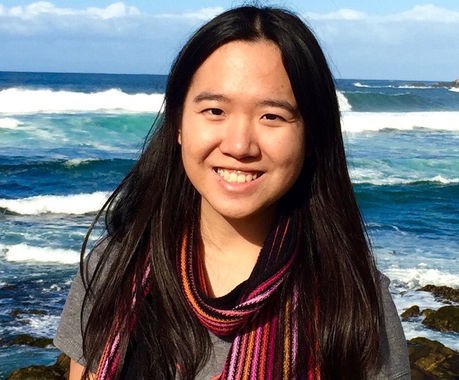"MEET OUR STUDENTS": SERINA CHANG

What year are you at Columbia?
CC 2019 (currently a sophomore)
What are/will you be majoring in?
Double major in Computer Science and Sociology
How long have you been a participant of the MPP?
Since the fall of my first year! This is my fourth semester with MPP.
How have you benefited by MPP programs and performance opportunities?
I’ve taken MPP lessons in solo piano and chamber music. In particular, I’m so grateful to MPP for its thriving undergraduate chamber program. I’ve been an avid performer of and advocate for chamber music ever since middle school, because I believe that chamber music’s intimacy and the communication it involves makes it one of the most evocative musical forms to players and listeners alike. Through MPP, I have gotten to work with two chamber groups – a piano duo with my sister Alison last year, and a piano trio currently with Jason Shu (violin) and Elena Ariza (cello). We have not only had great coaches through MPP, but also enjoyed multiple performance opportunities every semester, including MPP’s annual concert in Carnegie Weill Hall, the Mid-Day series in Faculty House (which gave us a full hour to perform!), and of course the end-of-semester concerts.
Any tips on how a student might be able to fully take advantage of all the musical offerings at Columbia?
Joining clubs is a great start – Columbia student organizations offer an amazing diversity of all types of music, from classical to jazz, opera to pop. Furthermore, even if you can’t join a club, attend their concerts! They are usually free or very affordable to the public, held on campus, and the performers are more than happy to have you in their audience. And if possible, try to stick around and meet a few people after the concert. I truly believe that Columbia is home to some of the most interesting musicians you’ll ever meet, because all of them pursue worlds beyond music – academics, extracurriculars, etc. – yet make time in their busy lives for music, out of their pure love for the art. This diversity and dedication brings something special to their playing and their personalities, and I think it is so worth it to get to know these unique individuals.
How do you balance the busy academic schedule with practice time? Any tips?
I don’t know if there’s a trick to balancing everything, but I think ultimately you have to go at music and practicing with the mindset that it is one of your priorities. It’s really a positive feedback loop for me: when I practice, I remember how valuable it is to have something outside of my busy academic schedule, I sound better and come more prepared to rehearsals, music feels more rewarding, and so I practice more. My busy academic schedule is therefore rarely a reason to cut down on practice time – if anything, the busier I get, the more I like to dive into music, because I need breaks for myself that I can take by diving into my musical world and relaxing for a moment from work.
What was the most memorable musical experience in your life?
One of my most memorable musical experiences was actually very recent! Just a couple of weeks ago, at the end of spring break, two of my best friends and I co-founded and co-produced our inaugural Intercollegiate Chamber Music Festival (ICMF). ICMF, as the name suggests, brought together collegiate musicians from Harvard, Princeton, and Columbia for a weekend of chamber music-making and learning. Bringing ICMF into fruition was one of the most meaningful and memorable things I’ve ever done, since the festival celebrates two things I hold extremely dear to my heart: chamber music, and the underserved passion and talent of collegiate musicians. I am so thankful to everyone who helped make ICMF possible, especially my staff from Columbia Classical Performers and our collaborators at the Chamber Music Society of Lincoln Center, and I will never forget the experience of our inaugural festival.
What does making music mean to you?
I think making music means creating something larger than yourself, and touching the people around you through the power of that collaboration. Classical music is after all the ultimate collaboration, spanning time, space, and individual minds. It is a legacy built by the composer, rooted in those who inspired him or her, then brought to life by the performer(s), and experienced by the audience. Perhaps for this reason I am so attracted to chamber music, because it heightens the stakes of collaboration and communication to its highest and most sublime level.